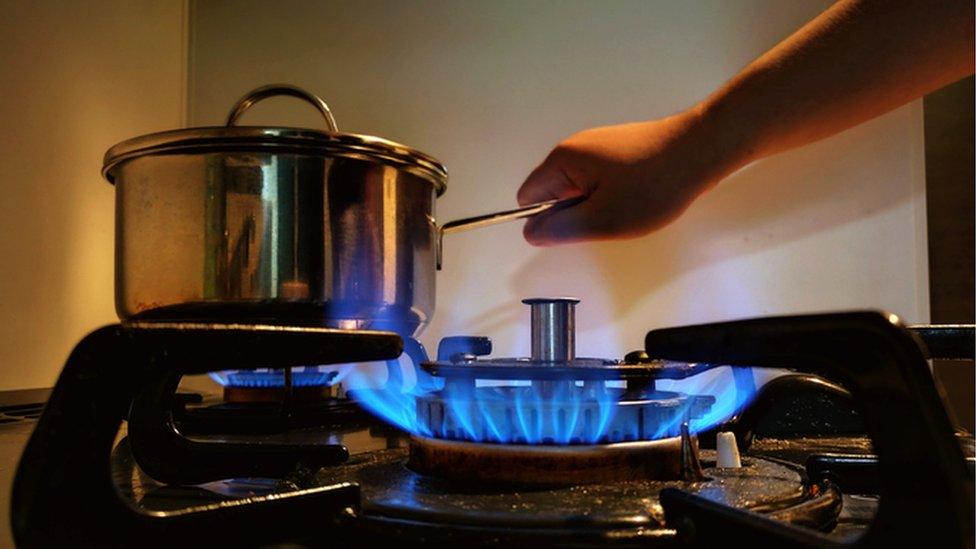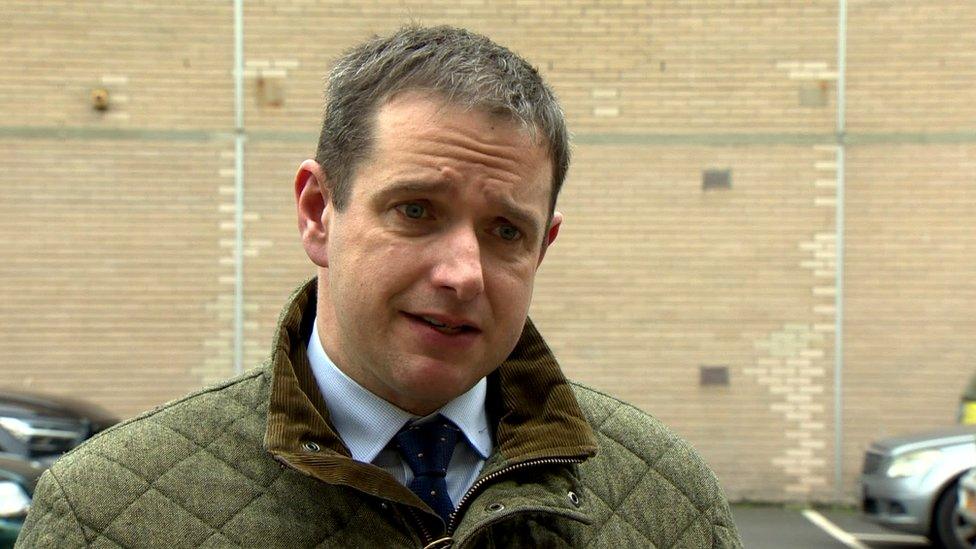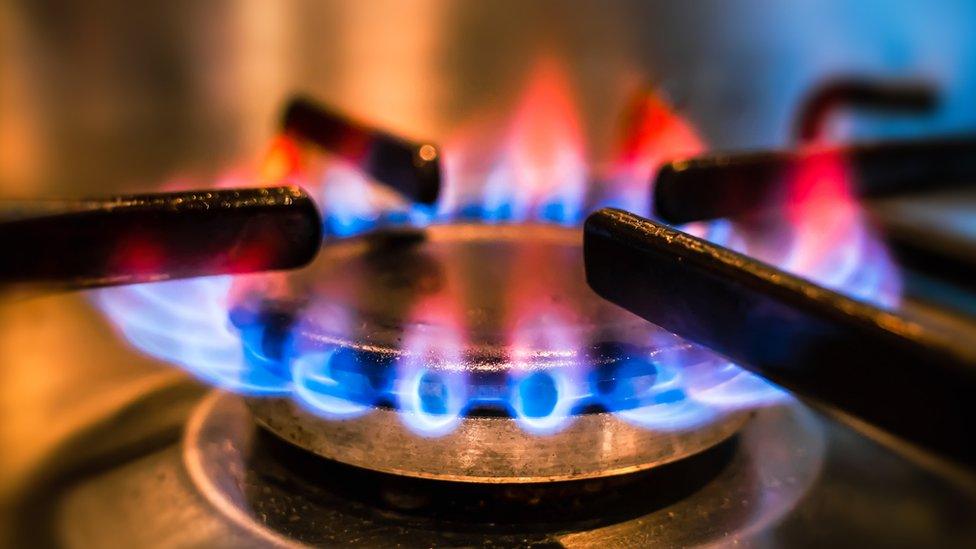Firmus Energy's Ten Towns network to see 16% gas price rise
- Published

Gas supplier Firmus Energy has announced its prices for natural gas will increase by 16.31% in its Ten Towns network.
The company said this rise, which will affect about 55,000 customers in the area, will take effect from 3 May 2022.
In February, Firmus Energy had announced its prices would increase by 33.57% in its Ten Towns network.
That was the fourth increase by the company since last spring.
The Ten Towns area includes Antrim, Armagh, Ballymena, Coleraine, Craigavon, Londonderry and Newry.
Interim managing director of Firmus Energy, Niall Martindale, said "energy markets remain at very high levels having been adversely affected by the war in Ukraine".
"This has been reflected across the board with increases in the costs of home heating oil, coal, electricity, and gas," he added.
"Regrettably the sheer scale of the increased costs involved give us no alternative but to pass on to our customers the higher costs we are having to pay for the gas we supply.
"Firmus Energy is committed to reducing its tariff for all customers as soon as the market crisis subsides and enables us to do so."
He said the company understood "it is a tough time" for many customers and it had been "providing financial and administrative support to the Department for Communities scheme to help those most in need".
"If any of our customers need further support, I would urge them to call our dedicated local team to see if we can help."
Mr Martindale said the company would announce "a tariff change for the Greater Belfast network area in the coming days".
The Utility Regulator said the price increase would mean that the average annual household gas bill will rise from £1,293 to £1,504 per year.
'Considerable strain'
In January, it had warned that gas prices would increase.
The wholesale price of gas makes up more than half of consumers' bills.
A worldwide squeeze on energy supplies pushed the price of gas up last year.
But wholesale prices have risen even higher since the invasion of Ukraine by Russia, which is the world's largest natural gas exporter
The UK gets little of its gas from Russia directly, but prices could still be driven up worldwide if Russian supplies to Europe were affected.

John French said he recognised the "energy crisis is putting the most vulnerable in our society under considerable strain"
Utility Regulator chief executive, John French, said on Thursday that after consultation with the Department for the Economy and the Consumer Council for Northern Ireland it had concluded that a 16.31% increase "was now needed to reflect the harsh underlying market conditions".
"I completely recognise that this energy crisis is putting the most vulnerable in our society under considerable strain," he said.
"I would therefore encourage anyone who is struggling with their bills to get in touch with their energy company as soon as they can.
"The regulatory process ensures that energy companies have clear obligations on how they act and how they provide support to consumers.
"We will continue to work with government, industry and support agencies to do whatever we can to support consumers through this crisis, in one of the most challenging markets we have seen in our history."
Raymond Gormley, head of energy policy at the Consumer Council, said it was important for consumers to be made aware that their domestic gas bills "will stay high for at least the next year", due to the wholesale price of gas being "much more expensive than the norm".
"Unfortunately heating oil prices are also very high, so regardless of the fuel we use, many of us will experience extreme pressure on our household budgets," he added.
"This will further increase the numbers of people in fuel poverty, as many families may struggle to find the extra money they will now need to pay for heating."
Mr Gormley urged the energy industry to "commit to financially supporting the continuation of a fuel hardship scheme in the coming financial year".
In January, an emergency winter fuel payment scheme opened for applications, with 11 companies from across the energy sector pledging more than £250,000 in donations to the scheme.
This scheme closes for applications on Thursday.
Related topics
- Published14 June 2022

- Published1 February 2022

- Published11 November 2021
